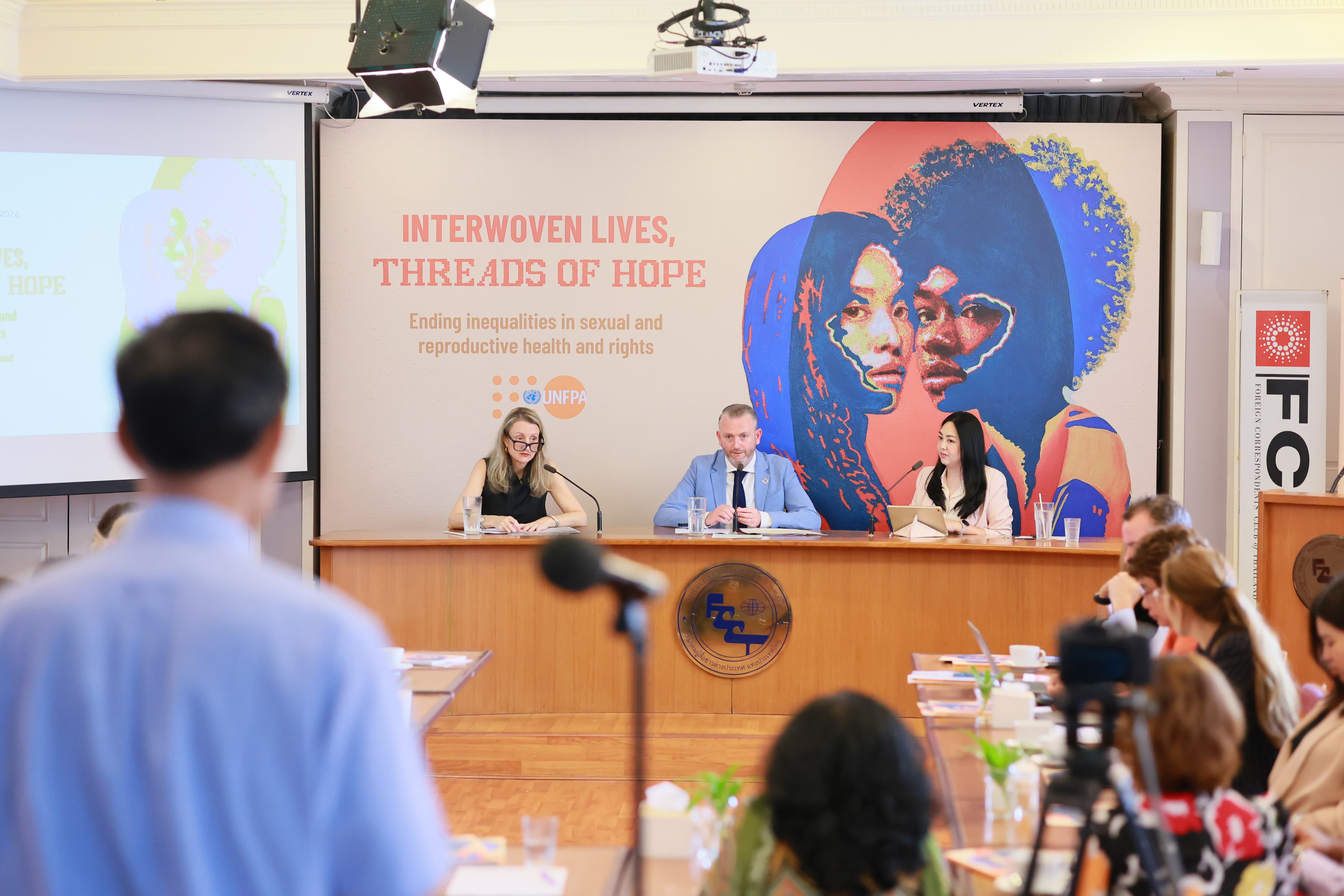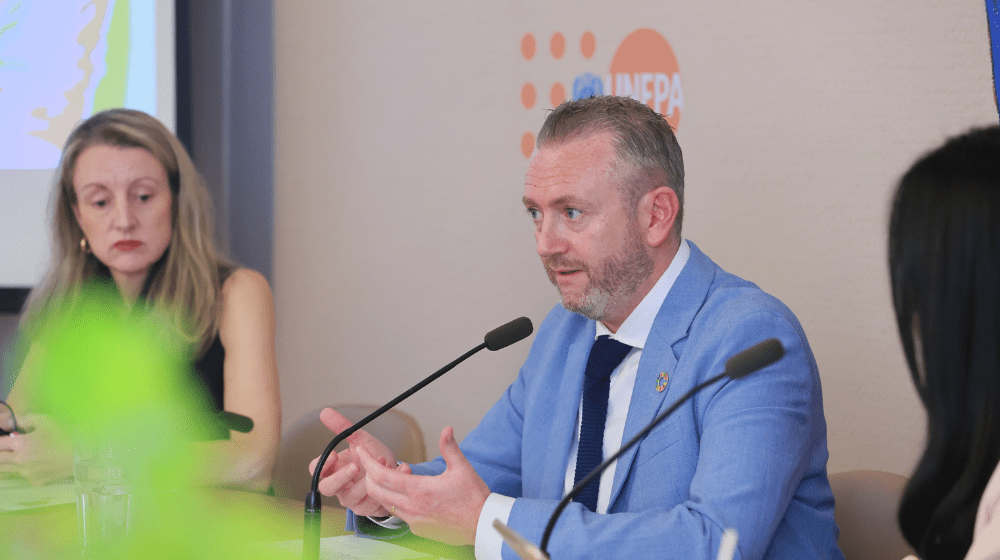Bangkok, 27 June 2024 – Sweeping global gains in sexual and reproductive health and rights over the last thirty years are marred by an ugly truth – millions of women and girls have not benefited because of who they are or where they were born, according to the 2024 State of World Population report by UNFPA, the UN sexual and reproductive health agency.
Entitled “Interwoven Lives, Threads of Hope: Ending inequalities in sexual and reproductive health and rights”, the report highlights how racism, sexism and other forms of discrimination continue to block broad gains in sexual and reproductive health for women and girls. Women and girls who are poor, belong to ethnic, racial and indigenous minority groups, or are trapped in conflict settings, are more likely to die because they lack access to timely health care:
Women from indigenous ethnic groups are more likely to die of causes related to pregnancy and childbirth.
Women with disabilities are up to 10 times more likely to experience gender-based violence than their peers without disabilities.
People of diverse sexual orientation and gender expression face rampant violence and steep barriers to care.
In Asia and the Pacific alone, more than six women die every hour from preventable causes related to pregnancy and childbirth. Less than one in four sexually active unmarried young people use contraception, and on average, half of the women from the Pacific Islands have experienced physical or sexual violence by an intimate partner at least once in their lifetime.

“Enormous progress has been made over the last three decades, globally and in Asia and the Pacific. In this region, maternal mortality has declined by 61 per cent since 2000, the most prominent decline of any region in the world,” said Mr. Pio Smith, UNFPA Regional Director for Asia and the Pacific. “Despite this progress, inequalities within societies and health systems continue to exist, failing to sufficiently reach those most marginalized. Our work remains unfinished, but with sustained investment and global solidarity, it is not insurmountable."
The evidence in the report reveals the troubling reality that healthcare improvements have primarily benefited wealthier women and those from ethnic groups with better access to services. Women and girls with disabilities, migrants and refugees, ethnic minorities, LGBTQIA+ individuals, people living with HIV, and those from disadvantaged castes face greater sexual and reproductive health risks and unequal access to care. Their vulnerability is further exacerbated by powerful forces such as climate change, humanitarian crises, and mass migration, which often disproportionately impact women on the margins of society.
The report underscores the importance of rooting biases out of health systems, investing in inclusive and reliable data that highlights the gaps so that inequities can be tackled through targeted interventions and policies that meet the specific those most left behind.
For interviews or more information, please contact:
Randima Jayasinghe: jjayasinghe@unfpa.org +65 984 9842
For media resources relating to the State of World Population Report 2024, including the Regional Director’s launch statement, please visit: unf.pa/SWP24-AP
For more information about UNFPA, please visit: www.unfpa.org
For more information about UNFPA’s work in Asia and the Pacific, please visit: asiapacific.unfpa.org


